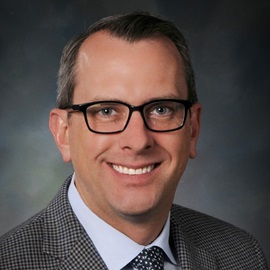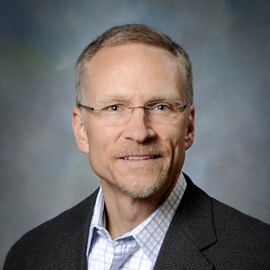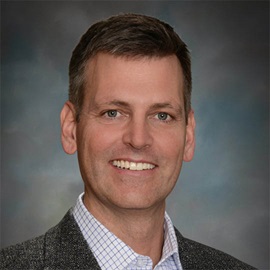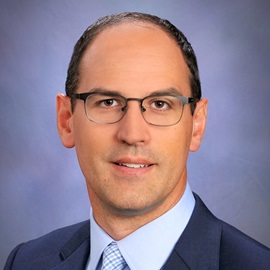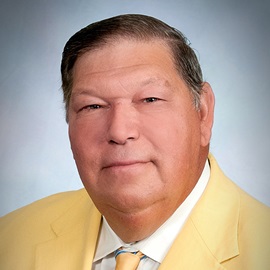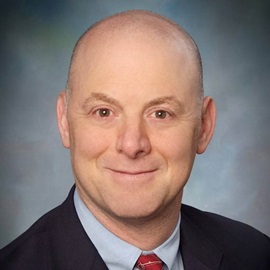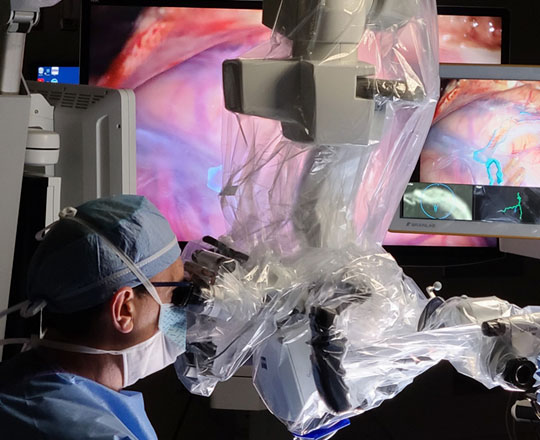
Highlights & Resources
-

Blog Post
St. Luke’s Parkinson’s patients get life-enhancing surgical care close to home
Read More -

Blog Post
Brain tumor survivor ready to tackle FitOne, with a little help from her friends
Read More -

Blog Post
Support Group Helps Patients, Family, Friends in Aftermath of Stroke
Read More -

Blog Post
Rehabilitation Helps Patient Learn How to Live Again Following a Stroke
Read More
Neurosurgery Sub-specialties
-
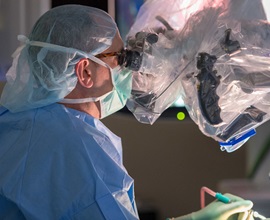
Cranial Surgery
Brain surgery to address conditions such as tumors, aneurysms, infection, and head injuries. -

Neurointerventional Surgery
Minimally invasive treatments in the head, neck, and spine, often eliminating the need for open surgery. -

Pediatric Cranial Surgery
Our team of surgeons and caregivers provides specialized care and treatment when your child needs cranial surgery. -

Skull Base Surgery
Skull base surgery may be an option for certain benign or cancerous tumors and other abnormalities on the underside of the brain.
Conditions
-

Acoustic Neuroma
An acoustic neuroma is a noncancerous growth or tumor on the auditory nerve near the inner ear.
-

Brain Aneurysm
A brain aneurysm is a weak spot in a blood vessel in the brain that bulges or balloons outward.
-

Brain Hemorrhage
Brain bleeds or hemorrhages are a kind of stroke cause by burst arteries in the brain.
-
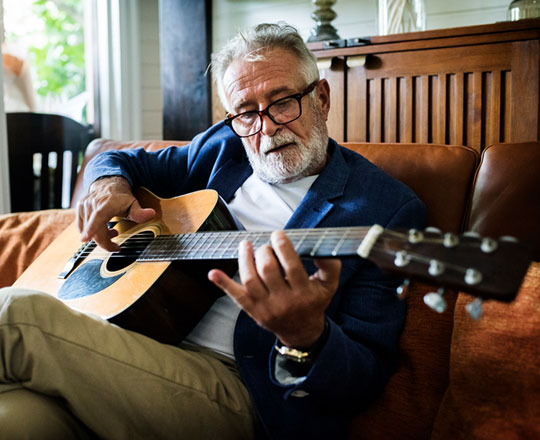
Brain Tumors
A brain tumor is a mass of abnormal cells inside the brain. St. Luke's offers many treatment options including traditional surgery, chemotherapy, and beyond.
-

Moyamoya
Moyamoya is a disease marked by constricted or blocked arteries at the base of the brain.
-

Normal-Pressure Hydrocephalus
NPH is an abnormal increase of fluid in the brain that puts pressure on the brain. It may be caused by a head injury, an infection, a tumor, or by unknown causes.
-
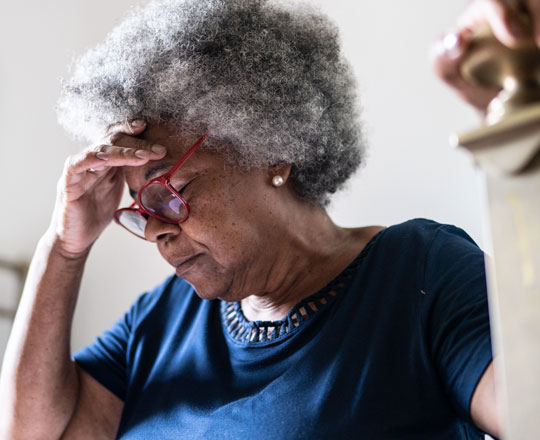
Stroke
Stroke occurs when a blood vessel in the brain is blocked or bursts. Brain damage can begin within minutes, so act quickly.
-

Trigeminal Neuralgia
Trigeminal neuralgia is a chronic condition marked by a sudden and severe pain in the face or jaw.
Providers
-
Neurosurgery
Biography
Donald J. Blaskiewicz, MD specializes in caring for people with complex spinal conditions, scoliosis, spinal deformity, and complex pathologies of the cervical spine.
Dr. Blaskiewicz is a fellow of the Scoliosis Research Society and the American Association of Neurological Surgeons (AANS). He is also a member of several professional organizations, including the Congress of Neurological Surgeons (CNS), the North American Spine Society (NASS), the Society of Minimally Invasive Surgery (SMISS) and the California Association of Neurological Surgeons (CANS).
In his free time, Dr. Blaskiewicz enjoys surfing, skiing, cycling, hiking, and traveling with his family.
Availability
Accepting new patients
-
Neurosurgery
Biography
Edward Duckworth, MD, MS, FAANS is an intracranial-focused neurosurgeon, specializing in the treatment of complex cranial disorders. He has expertise in treating many conditions, including cerebrovascular disease and the surgical treatment of stroke; brain tumors, including pituitary tumors; acoustic neuroma; skull base tumors; Chiari malformation; epilepsy; moyamoya; trigeminal neuralgia; arteriovenous malformations, cavernoma; normal-pressure hydrocephalus (NPH); and carotid artery disease. He is the director of St. Luke's Cranial Neurosurgery Program.
Dr. Duckworth holds the distinction of being "dual-fellowship trained," having completed fellowship training in cerebrovascular and cranial base surgery at Northwestern University and in endovascular neurosurgery and interventional neuroradiology at Semmes-Murphey Neurologic and Spine Institute and the University of Tennessee Health Science Center. He as also earned a subspecialty certification in neuroendovascular surgery from The Society of Neurological Surgeons Committee on Advanced Subspecialty Training (CAST). This depth of expertise allows him to offer the safest and most effective treatments for cerebrovascular conditions, whether that is open surgery or an endovascular technique.
While working at the Baylor College of Medicine, he held the rank of associate professor and served as the director of cerebrovascular and cranial base neurosurgery.
Dr. Duckworth is a member of the American Association for Neurological Surgeons and the Congress of Neurological Surgeons. He has published over 50 peer reviewed papers and given more than 40 oral presentations on neurosurgery.
Surgical Specialties
- Neurosurgery
- Cerebrovascular neurosurgery
- Endovascular neurosurgery
- Endovascular surgical neuroradiology
- Neurological skull base surgery
Availability
Accepting new patients
-
Neurosurgery
Biography
Gregory S. Harrison, MD, FAANS specializes in complex spine surgery, brain tumor surgery, peripheral nerve surgery, and general neurosurgery. Before moving to Boise, he practiced in both the Minneapolis/St. Paul area and Pocatello, ID.
Dr. Harrison earned his bachelor's degree at Yale University and completed his medical degree at Loyola University Chicago Stritch School of Medicine, graduating with Alpha Omega Alpha honors. After his neurosurgery residency at Cleveland Clinic Foundation, Dr. Harrison performed his fellowship at the Royal Melbourne Hospital in Australia, with a focus on brain tumors and skull base surgery.
Surgical Specialties
- Brain surgery
- Spine surgery
- Discectomy
- Laminectomy
- Cervical and lumbar fusion
- Corpectomy
Availability
Accepting new patients
-
Neurosurgery
Biography
Kenneth M. Little, MD, FAANS is the director of St. Luke's Clinic – Northwest Neurosurgery Associates and the regional director of spine surgery at St. Luke's Boise. His areas of expertise include complex spinal surgery, minimally invasive spinal surgery, brain tumor surgery, peripheral nerve surgery, reconstructive spine surgery, general neurosurgery, and artificial disc replacement. He also specializes in treatment of spinal tumors, cerebrovascular disorders, and degenerative spinal conditions.
Dr. Little earned his bachelor's degree in neuroscience from the University of California at Los Angeles where he received the Athletic and Academic Achievement Award. He earned his medical degree from Vanderbilt University where he received the Neurobiology Research Award for his work in neuroplasticity. While completing his neurosurgery training at Duke University, Dr. Little pursued a wide variety of clinical and academic interests. He authored several research papers and book chapters and received the Congress of Neurological Surgeons Stereotactic and Functional Neurosurgery Resident Award for his basic science work in epilepsy.Dr. Little also leads quality initiatives at St. Luke’s Health System across the continuum of care including a multidisciplinary outpatient spine clinic. Dr. Little is a member of St. Luke’s Research Advisory Committee and has a particular interest in comparative effectiveness research and novel analytics through mathematical modeling.
Surgical Specialties
- Brain surgery
- Spine surgery
- Discectomy
- Laminectomy
- Cervical and lumbar fusion
- Corpectomy
Availability
Accepting new patients
-
Neurosurgery
Biography
Derek Martinez, MD, MS specializes in the treatment of a wide array of complex brain, spine, and peripheral nerve conditions. He has expertise in surgery for brain and spine tumors, complex spine care, radiosurgery, cerebral hemorrhages, artificial disc replacement, normal-pressure hydrocephalus (NPH), and general neurosurgery. He also performs surgery for neuromodulation and the treatment of movement disorders and epilepsy.
Dr. Martinez is board certified by the American Board of Neurological Surgery. He is also a member of the Congress of Neurological Surgeons, the American Association of Neurological Surgeons, and the American Society for Stereotactic and Functional Neurosurgery.
Prior to his medical education, Dr. Martinez earned a bachelor's degree from Brigham Young University-Idaho and a master's degree in neuroscience from Brigham Young University.
Surgical Specialties
- Deep brain stimulation (DBS)
- Epilepsy surgery
- Stereotactic neurosurgery
- Brain and pituitary tumors
- Spine tumors
- Complex spine surgery
- Peripheral nerve surgery
Availability
Accepting new patients
-
Neurosurgery
Biography
Ben McGahan, MD is a highly skilled neurosurgeon, specializing in minimally invasive brain and spine surgery using advanced techniques such as robotic-assisted spinal fusion and endoscopic spine surgery. His expertise encompasses a wide range of spinal conditions, including spinal stenosis, disc herniations, spinal trauma and infections, complex spinal deformities, and spinal tumors. Dr. McGahan also treats brain tumors, traumatic brain injuries, hydrocephalus, facial pain and spasms, and Chiari malformations.
Dr. McGahan is known for his patient-centered approach, ensuring that each patient receives personalized, compassionate care tailored to their specific needs. He believes in clear communication and works closely with patients to develop the best treatment plans. Dr. McGahan is also involved in community health initiatives, reflecting his dedication to the well-being of his community.
During his residency at The Ohio State University, Dr. McGahan distinguished himself through a high volume of surgeries and significant research contributions. His work on reducing wound infections, improving skull base surgery visualization, and reviewing non-operative back pain management has been published in leading medical journals, underscoring his commitment to advancing the field of neurosurgery.
Dr. McGahan lives in Boise with his wife and two children. He values family and understands the importance of work-life balance, which he incorporates into his compassionate care philosophy.
Availability
Accepting new patients
-
Neurosurgery
Biography
Richard Osenbach, MD focuses on the neurosurgical treatment of chronic pain disorders as well as the neurosurgical treatment of movement disorders such as essential tremor and Parkinson's disease. He is experienced in a wide array of neurostimulation devices, including the use of spinal cord (dorsal column) stimulation, peripheral nerve stimulation, motor cortex stimulation, and deep brain stimulation.
Dr. Osenbach is experienced in the implantation of spinal drug delivery devices for the management of chronic pain and spasticity. He also manages pain associated with cancer and other problems like complex regional pain syndrome, pain following brachial plexus avulsion, phantom limb pain, pain following nerve surgery, and craniofacial pain disorders.
Prior to his medical education, Dr. Osenbach earned his bachelor's degree in biochemistry from Albright College. He served in the U.S. Army as assistant chief of neurosurgery at Walter Reed Army Medical Center, and has served as faculty at the Medical University of South Carolina and Duke University Hospital. He is certified by the American Board of Neurological Surgery.
Surgical Specialties
- General cranial surgery
- Spinal surgery
- Neurostimulation and functional neurosurgery
- Peripheral nerve surgery
Availability
Accepting new patients
-
Neurointerventional Surgery
Biography
John Perl II, MD is an endovascular surgical neuroradiologist specializing in minimally invasive neurointerventional procedures for a wide variety of conditions, including ischemic and hemorrhagic stroke, brain aneurysms, arteriovenous malformations (AVM) and dural AVMs, carotid artery stenosis, cerebral vascular stenosis, painful spinal fractures, and vascular disorders of the head, neck, brain and spine.
Dr. Perl completed his diagnostic radiology residency at the University of Alabama. Following fellowship training in neuroradiology at the Cleveland Clinic Foundation and in interventional neuroradiology at the University of Wisconsin, Dr. Perl was recruited to join the prestigious Cleveland Clinic Foundation. There, he honed his endovascular surgery skill with some of the world’s most renowned neuroradiologists and neurosurgeons. He next moved to Minnesota to work in a busy neurovascular and pain management practice at Abbott Northwestern Hospital in Minneapolis. Dr. Perl eventually followed his heart back to the Mountain West, where he grew up and wished to raise his children. He finds great joy in dedicating his expertise to treating patients in this region.
In Boise, Dr. Perl partnered with Dr. Tony Bell to establish the St. Luke's stroke program, providing state-of-the-art care for stroke patients in Idaho.
Dr. Perl is a senior member in the Society of NeuroInterventional Surgery and the American Society of Neuroradiology. He has been a part of extensive research programs and has been published in medical journals including the Journal of Neurotrauma, Radiology, the American Journal of Neuroradiology, the Journal of Endovascular Surgery, and others. He has been a featured presenter and guest lecturer at conferences throughout the United States, Canada, and Europe. A true Westerner at heart, he feels most at home enjoying the Idaho outdoors with his family.
Availability
Accepting new patients
Make an appointment
St. Luke's Clinic - Northwest Neurosurgery Associates: Boise, Bannock St.
Call us to make an appointment.
(208) 381-5500
Office Hours
Make an appointment
St. Luke's Clinic - Northwest Neurosurgery Associates: Boise, Bannock St.
Call us to make an appointment.
(208) 381-5500
Office Hours
Make an appointment
St. Luke's Clinic - Northwest Neurosurgery Associates: Boise, Bannock St.
Call us to make an appointment.
(208) 381-5500
Office Hours
St. Luke's Clinic - Northwest Neurosurgery Associates: Meridian
Call us to make an appointment.
(208) 381-5500
Office Hours
St. Luke's Clinic - Northwest Neurosurgery Associates: Nampa
Call us to make an appointment.
(208) 381-5500
Office Hours
Make an appointment
St. Luke's Clinic - Northwest Neurosurgery Associates: Boise, Bannock St.
Call us to make an appointment.
(208) 381-5500
Office Hours
Make an appointment
St. Luke's Clinic - Northwest Neurosurgery Associates: Boise, Bannock St.
Call us to make an appointment.
(208) 381-5500
Office Hours
St. Luke's Clinic - Northwest Neurosurgery Associates: Meridian
Call us to make an appointment.
(208) 381-5500
Office Hours
St. Luke's Clinic - Northwest Neurosurgery Associates: Boise, 2nd St.
Call us to make an appointment.
(208) 381-5500
Office Hours
St. Luke's Clinic - Northwest Neurosurgery Associates: Nampa
Call us to make an appointment.
(208) 381-5500
Office Hours
Make an appointment
St. Luke's Clinic - Northwest Neurosurgery Associates: Boise, Bannock St.
Call us to make an appointment.
(208) 381-5500
Office Hours
Make an appointment
St. Luke's Clinic - Neurointervention: Boise
Call us to make an appointment.
(208) 381-9384
Office Hours
St. Luke's Clinic - Neurointervention: Meridian
Call us to make an appointment.
(208) 381-9384
Office Hours
Make an appointment
St. Luke's Clinic - Northwest Neurosurgery Associates: Boise, 2nd St.
Call us to make an appointment.
(208) 381-5500
Office Hours
St. Luke's Clinic - Northwest Neurosurgery Associates: Boise, Bannock St.
Call us to make an appointment.
(208) 381-5500
Office Hours
St. Luke's Clinic - Northwest Neurosurgery Associates: Meridian
Call us to make an appointment.
(208) 381-5500
Office Hours
-
Facilities & Locations
-
In All Locations
-
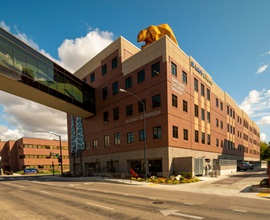
St. Luke's Children's Neurosurgery: Boise
305 E. Jefferson St.Boise, ID 83712(208) 381-7360 -
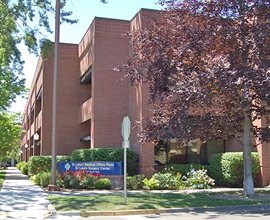
St. Luke's Clinic - Neurointervention: Boise
333 N. 1st St.Suite 250Boise, ID 83702(208) 381-9384 -
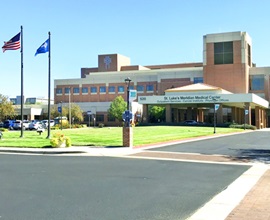
St. Luke's Clinic - Neurointervention: Meridian
520 S. Eagle Rd.Suite 3201Meridian, ID 83642(208) 381-9384 -
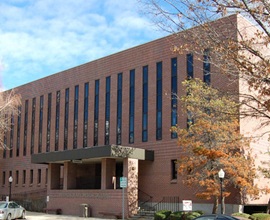
St. Luke's Clinic - Northwest Neurosurgery Associates: Boise, 2nd St.
222 N. 2nd St.Suite 215Boise, ID 83702(208) 381-5500 -
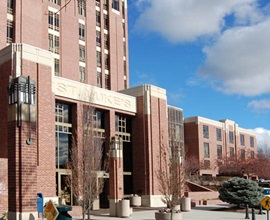
St. Luke's Clinic - Northwest Neurosurgery Associates: Boise, Bannock St.
190 E. Bannock St.(10th Floor)Boise, ID 83712(208) 381-5500 -

St. Luke's Clinic - Northwest Neurosurgery Associates: Meridian
520 S. Eagle Rd.Suite 1201Meridian, ID 83642(208) 381-5500 -

St. Luke's Clinic - Northwest Neurosurgery Associates: Nampa
9850 W. St. Luke's DriveSuite 215Nampa, ID 83687(208) 381-5500
Procedures & Treatments
-
When conservative treatment isn’t helping, surgery may be an option for resolving your back or spine problems.
-
Deep brain stimulation (DBS) is a therapy that can improve quality-of-life when medication cannot be further optimized.
Related Programs
Support Groups
-
showing 3 of 3
-
Brain Tumor Support Group
Support GroupsJoin us for this support group to share your story, learn about coping with symptoms and psychological changes, and get important medical updates.
-
Life after Stroke Support Group: Meridian
Support GroupsAchieve your best quality of life after stroke with medical advice, community resources, and connecting with others.
-
Life after Stroke Support Group: Twin Falls
Support GroupsHelp yourself adjust back to life after a stroke by attending this supportive and informational group for stroke patients and their families.
Support the Patients and Families at St. Luke's Neurosciences
You Can Make a Difference
You can make a real difference in the lives of patients and families facing medical challenges. We hope you’ll help us provide the exceptional healthcare and support they deserve. We encourage you to get involved by making a financial gift, sponsoring or attending events, or volunteering your time.


